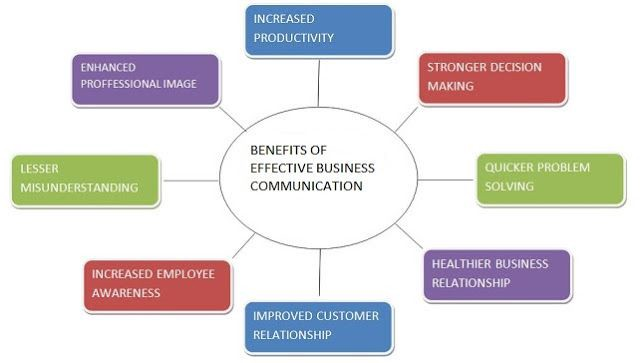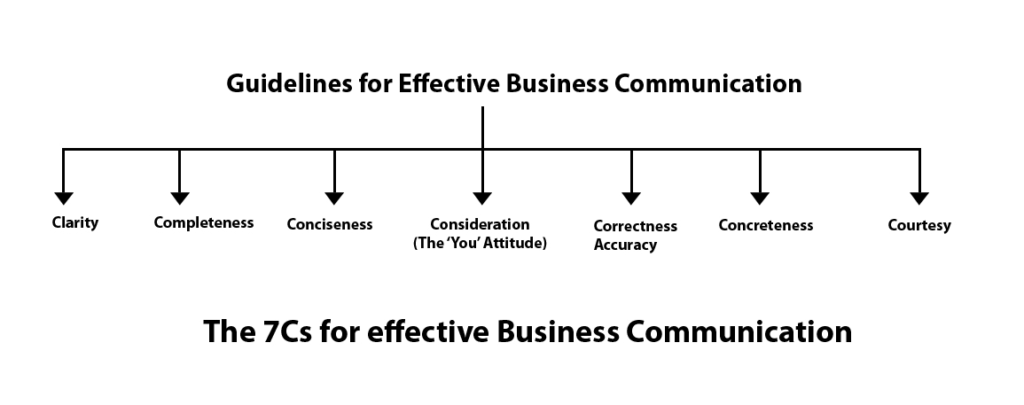Understanding the Importance of Business Communication [+5 Tips]
![Understanding the Importance of Business Communication [+5 Tips]](/_next/image/?url=https%3A%2F%2Fwordpress.peppercontent.io%2Fwp-content%2Fuploads%2F2022%2F03%2FVenting-Can-Be-Good-For-You-At-Work.-Here_s-How.jpg&w=1536&q=75)
Table of Contents
- Why Is Business Communication Important?
- Consequences of Poor Business Communication
- 5 Effective Business Communication Tips
- Conclusion
- FAQs
Verbal and nonverbal communication is fundamental to human interaction in every institution and situation. Business communication is a tool for sharing messages, objectives, and expectations between people within and outside an organization. However, communication occurs through several channels and levels in a business organization. This is why the importance of business communication should be clearly outlined.


Why Is Business Communication Important?
In any business organization, you should be capable of clearly explaining the business terms, policies, and strategies to your investors, partners, and other stakeholders. The success achieved in developing networks and winning negotiation deals for a business illustrates the importance of communication in business organizations.
Downward communication occurs when a message gets transferred from a senior to a subordinate. An exchange of information from a junior constitutes upward communication. Lateral communication is the exchange of information between coworkers. And every written or verbal interaction with the customers falls under external communication.
And therefore, effective communication plays a significant role in translating macro- and micro-business goals into milestones. It ensures that each person understands the work objectives and expectations across various levels of the organization.
Besides this, direct and indirect business interactions with the customers depict your business standards and service quality. Also, the definition of good customer service and management of customer feedback relies on effective business communication. Therefore, it is almost impossible to delight your customers if you do not know what they want. Also, they will not be satisfied if they are unsure that you understood them completely.

Furthermore, your employees feel secure when they clearly understand what they are supposed to do and whom to approach in case of disputes. Effective communication further encourages them to openly discuss their issues with their seniors and support their subordinates.
A clear and respectable way of communication fosters strong relationships between employees and the management. Such relationships consequently improve the morale and productivity of the employees. It leads to a good culture within the confines of the company, where everyone feels like they are an essential part of it. Thus, each interaction significantly contributes to the success and stability of the business.
Consequences of Poor Business Communication
You will need to audit the present state of business communication if you find the following circumstances frequent in your company.
- The work output in your business is lower than the average or as expected.
- Most of the time, there is a failure to meet deadlines and no strict time-frame for any work.
- A lot of time gets wasted in correcting the tasks completed by a team.
- There is a lack of ownership and a sense of responsibility at all levels of the organizational hierarchy.
- The subordinates in your company wait for days and weeks to get their work approved by their immediate managers.
- A significant amount of time and money gets wasted in completing tasks not allocated to the most deserving people in your company.
- You might experience an increase in the number of arguments, disagreements, or conflicts between staff members.
- Employees tend to get accusatory and blame someone else for not achieving their goals.
- There is no motivation and excitement among coworkers.
- Often, managers and team members do not exchange important information.
- You seem to observe heightened dishonesty at your workplace.
- There is plenty of irrelevant information circulated, causing a state of confusion and inaction. The role of communication in business is being downplayed by employees.
- Furthermore, too many silly mistakes, miscommunication, or lack of communication contribute to a chaotic business environment.
- Your business is falling behind in achieving its goals and milestones.
- Customers are turning up with unresolved complaints.
5 Effective Business Communication Tips
Success in any business is likely to be achieved through effective communication between stakeholders who listen to and understand each other. The role of communication in business is undeniably significant.
You can establish proper communication strategies to transform the present and future of your business. The effective business communication tips mentioned below may help you.
1. Clarity is everything
You must convey a clear vision of the goals of your company. This clarity helps each person involved remain on the same page, and understand the objectives completely. Your employees will eventually know the expectations and challenges they might face along their journey.

Knowing the task beforehand, and the time frame will likely increase their work efficiency. They can fully comprehend the consequences if they fail to do so. Furthermore, define each job role objectively, with a reward for employees who would go that extra mile to achieve the targets.
2. Construct small, dedicated teams
Create multiple groups of up to five people, wherein one of the team members acts as a volunteer representative working towards macro-business goals. Then make a team of representatives from each group who ratify the achievement of micro-business goals.
Small teams tend to work fast and communicate well at the individual level. This is because, for many employees, it is an uphill task to reach their managers or bosses for small queries seeking resolution for their issues.
3. Guarantee transparency
Allow your employees to be upfront and open while discussing any issue within the company despite the organizational hierarchy. The importance of effective business communication gets depicted when employees feel secure in voicing their concerns about a situation that could otherwise bring down the entire team.
They must be comfortable sharing their opinions about their experiences with their managers and coworkers. When employees feel secure about voicing their thoughts, they work confidently and efficiently.
4. Reinforce terms and rules
Prepare a written document that explains the policies of your business and expectations from employees. Having some rules and regulations laid down helps establish consistency across the board. It also enables you to communicate your intent, set conduct guidelines, and produce a legitimate reference for procedures or systems to be followed. This is one of the most crucial effective business communication tips you need to follow.
5. Automate and organize
The last and the most crucial tip that reinforces the role of communication in business is establishing a system for effective business communication. You can automate the process by creating a shared platform, wherein the manager relays the information from top to bottom.
Organize a shared calendar listing the upcoming deadlines. It will ensure each person has all the information they need to accomplish their shared goals efficiently and coordinate with each other.
Conclusion
The success of any business relies heavily on how efficiently a group of people works towards a common goal. The lack of clarity and understanding may hinder employees from accomplishing their shared goals efficiently and coordinating with each other.
It directly impacts work output and the business environment, leading to job dissatisfaction and confusion. This is exactly why the importance of business communication should be established beforehand. Effective communication in a business organization is crucial in executing day-to-day tasks that add to long-term business goals. The frequency of common mistakes can also be addressed through clear communication.
FAQs
It is a tool for sharing messages, objectives, and expectations between people within and outside a business.
Upward, downward, lateral, and external communication occurs in every organization.
It increases employee retention rate, job satisfaction, fast resolution of issues, sense of security among employees, open dialogue between stakeholders, clarity, and objectivity, thus maximizing business returns.
A business cannot become a successful one without good communication. It helps all entities of the company stay on the same page and work towards a shared goal more effectively.
If you want your business to function smoothly, it is important to keep both your internal and external communication in check. You can try out our website content writing services to communicate your message to all parties effectively.
Latest Blogs
Explore how Google’s 2025 AI search updates triggered ranking chaos. Learn actionable strategies to adapt your SEO for AI Overviews, zero-click searches, and SERP volatility. Stay ahead now.
Learn how to rank on AI search engines like ChatGPT, Perplexity, and Gemini by optimizing your content for authority, structure, and relevance. Stay ahead in AI-driven search with this strategic guide.
Explore the best healthcare SEO services for your medical practice. Improve online visibility and effectively reach more patients in need of your services.
Get your hands on the latest news!
Similar Posts

Artificial Intelligence
4 mins read
AI Content Generators: Making Content Creation Easier for Businesses
Business and Corporate
< 1 mins read
#TeamGB
Business and Corporate
< 1 mins read